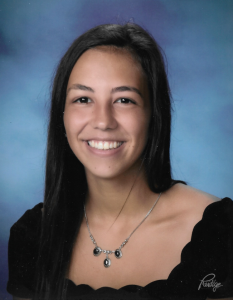Column: “Tell me about yourself”
Mar 28, 2019
There is probably no single question that gives interviewees more anxiety than “Tell me a little bit about yourself.” It is almost always the first question that an interviewer will ask, but despite full knowledge that this question will likely come up in the interview, hopeful job applicants often manage to screw this one up.
It’s frankly counter-intuitive that this question brings as much frustration as it does. After all, shouldn’t “who you are” be the thing you’re most qualified to speak about?
The problem is that a lot people are innately averse to speaking about themselves in the way that we are forced to during a job interview. All the self-aggrandizing is unnatural and uncomfortable. For college students, speaking about “who we are” is especially challenging as we are still going through the exercise of self-discovery that is supposed to lead us to that answer. Having to reconcile the dissonance of who you think you are, with who you think you want to be, with what you think the interviewer wants to hear is not an easy task.
As a result, this question has been a difficult one for a lot of interviewees to master.
I have interviewed close to two dozen students between recruiting for my company and interview training I’ve done with Boler students as a part of BPD. Here are the four most common ways I’ve seen interviewees miss the mark on this:
1. They recite their resume: One of the worst pieces of interview advice I got as an undergrad was to prepare for this question with the fabled “elevator pitch.” After being on the other side of the interview table, I’ve come to realize how boring and uninteresting a dull 30 second recital of a candidates educational and professional background can be. You aren’t in an elevator. By the time you go into a interview, the interviewer knows your major, where you go/went to school and where you’ve worked. Just listing all this adds no context to who you are.
2. They overthink: Many people get very anxious thinking about what exactly the interviewer wants to hear. Without realizing it, they find themselves thinking out loud asking, “Do you want to know about my job experience? Or more about me personally?” It’s a very awkward way to start to interview and demonstrates a lack of confidence on your part. It’s a mistake I would expect to find in people who are naturally more introverted.
3. They get too personal: There was one candidate I did a mock interview with who went on and on about her personal life, talking as if we were sitting at Starbucks on a first date. Speaking about your personal hobbies is great, but it cannot be the overarching theme of your answer. You’ll come across as unprofessional and unrefined.
4. They ramble: A few candidates I’ve interviewed have rambled through a lengthy, incoherent and disjointed list of traits and experiences that left me with no clear understanding of who they are. Doing this will make you come across as unprepared and lacking self-awareness.
It’s all terribly unfortunate as this first question is arguably the most important part of the interview. It’s your opportunity to make a strong first impression, demonstrate your likability and control the overall tone of the interview from that point forward.
So how should you answer this question?
I suggest thinking about your answer as a two-phase charm offensive, each with its own unique objective.
Phase one is where you reaffirm your qualifications and phase two is where you seek to build an emotional bond with the interviewer.
The general blueprint for phase 1 is to highlight who you are, why you’re qualified and why you’re there.
Here are a few examples for context: Start by briefly describing your professional profile: “I’m a public accountant with three years of experience working with Big 4 accounting firms” or, if you’re a student, “I’m a motivated and resourceful junior marketing major at one of the best business schools in the Midwest.”
After, summarize your expertise in the relevant areas: “In my three years as a public accountant, I have been responsible for the successful audit of multiple Fortune 500 companies where I have gained exposure to a diverse mix of transactions and accounting systems while working with teams in a high-pressure environment” or “The school’s fantastic marketing program has given me a strong understanding of the fundamental concepts of marketing including branding, consumer behavior and market research.”
Finally, say why it is that you’re applying for the job by being concise and positive: “Although I have enjoyed my current role, I feel I am now ready to take on greater responsibility which is what this position is providing me” or “Having excelled in my undergraduate coursework, I am ready to challenge myself in a professional setting and I am excited by the opportunity to do this with your company.”
Then, you transition: “Aside from that…”
Which brings us to phase two: This part of your response is where you let your personality shine as you share experiences that speak to the core of who you are.
It really doesn’t matter what the experience is, so long as you are genuinely passionate about it and can relate it to a skill or trait you think is relevant to the job you’re applying for.
Sharing these experiences will usually demand a follow-up question from the interviewer as they’d want to avoid leaving awkward conversational tension that would have been built up by you sharing something personal/vulnerable.
This gives you the opportunity to speak about those experiences in more detail, which will allow you to steer the interviewer away from the formal questions they prepared and toward subjects that you’re truly passionate about. It relaxes the tone of the interview and sets you on the path to establishing an organic connection with your interviewer.
The most beautiful thing about speaking about your passions is what it physically does to you.
When you speak about a topic you genuinely care about, without you even noticing, your eyes tend to brighten, your smile widens and the overall tone and inflections in your voice become more pronounced.
These non-verbal demonstrators of excitement make what you share that much more captivating and you that much more likeable. People are naturally attracted to energy and enthusiasm. Speaking about things you actually care about allows you demonstrate those emotions so you don’t have to fake being in love with financial accounting.
Beyond this, when you open-up about personal experiences, the interviewer will naturally begin to feel a stronger emotional connection to you. It opens the opportunity for shared experiences and reciprocity. When you see your interviewer also opening up about their personal experiences and relating it to your own, that’s when YOU KNOW you’ve won them over.
Feel free to open up about that wacky hobby you have, or your study abroad experience in Europe, or your immersion trip to central America or how you and your teammates rallied together to win the OAC basketball tournament last season.
Whatever you choose to talk about, just be authentic and enthusiastic about it.











